Category: Uncategorized
Leading from the South : Appel à Projets
Leading from the South : Appel à Projets
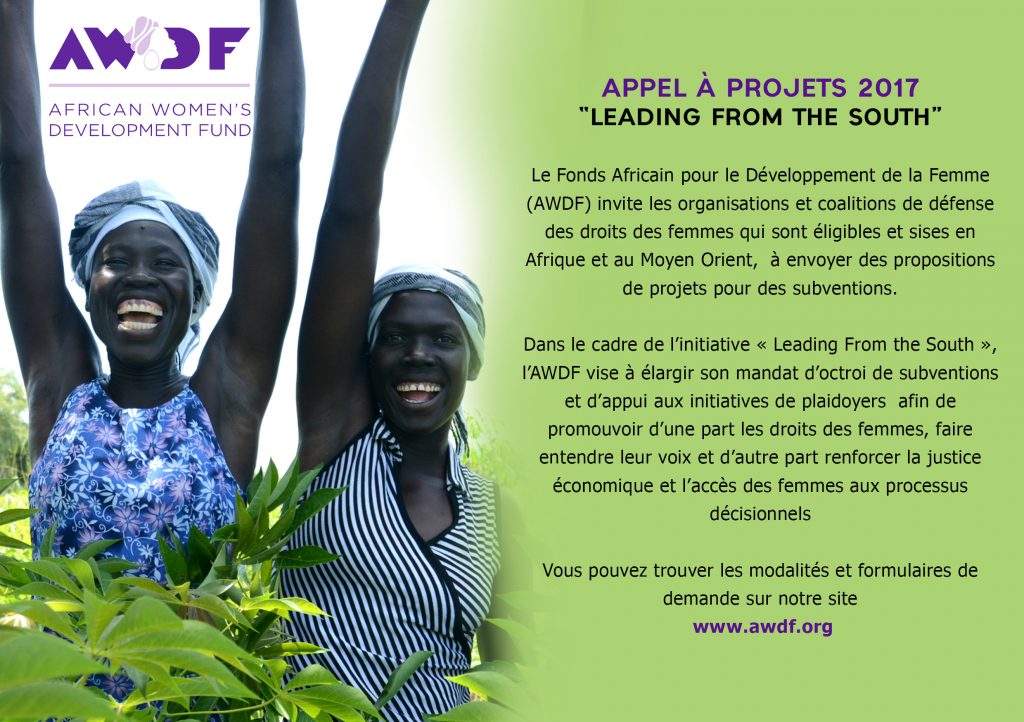
L’AWDF a le plaisir de lancer un premier appel à projets dans le cadre du financement “Leading From the South”. Pendant les 4 prochaines années, l’AWDF aura non seulement à appuyer les organisations et réseaux de défense des droits des femmes mais aussi à élargir son mandat d’octroi de subventions pour inclure quelques pays du Moyen Orient. L’objectif de ce financement est faire avancer les actions de plaidoyers en faveur des droits fondamentaux des femmes.
Les subventions sont classées en trois catégories:
Yalla (20.000US$- 50.000US$ par an pendant une durée de deux ans)- date de délai de dépôt de dossier : 20 février 2017
Ananse (51,000US$- 199,000US$ par an pendant une durée de deux ans)- date de délai de dépôt de dossier : 20 février 2017
Pamoja (200,000US$- 500,000US$ par an pendant une durée de deux ans)- date de délai de dépôt de dossier : 3 mars 2017
Veuillez télécharger ci dessous tous les documents importants relatifs à cet appel à savoir les formulaires et modalités de demandes de subvention, le guide d’élaboration de budget et la fiche d’évaluation de gestion financière.
Modalités des demandes
Formulaire de demande – subvention Yalla
Formulaire de demande – subvention Ananse
Formulaire de demande – subvention Pamoja
Guide d’élaboration de budget
Questionnaire sur la capacité de gestion financière de l’organisation postulante
LEADING FROM THE SOUTH
LEADING FROM THE SOUTH
[tp lang=”en” not_in=”fr”]
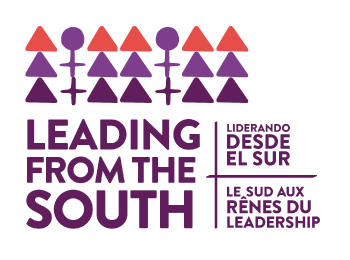
‘Leading from the South (LFS)’ – a new fund to resource women’s rights activism in the global South.
Leading from the South Fund is a global grant making programme aimed at providing support to women’s organisations, groups and movements around the world to lobby and advocate for their rights. Initiated in 2017 and financed by the Ministry of Foreign Affairs of the Netherlands, the fund supports activism devised, implemented and led by women’s rights organisations in the global South. It is jointly managed by three regional women’s funds and one global women’s fund, each with an independent yet complimentary approach.
The Four administrators of the fund are:
- African Women’s Development Fund (AWDF): Africa and the Middle East
- Fondo Mujeres del Sur (FMS): Latin America
- South Asia Women’s Fund (SAWF): Asia Pacific
- FIMI International Indigenous Women’s Forum (AYNI): Global Indigenous Women
In the Global South, women’s organisations and networks play a crucial role in influencing the policies of governments, leaders, communities and other actors to achieve Global Goal no. 5: gender equality and empowerment of all women and girls. LFS promotes cross-border cooperation and connects grassroots organisations with national, regional and global networks and movements.
Through grants, capacity development, and lobbying and advocacy, LFS will help equip organisations to influence policy, tackle power imbalances and reduce exclusion, violence, discrimination and inequality.
For information on our previous LFS calls, statistics, Frequently asked questions please see the links below.
LFS Grants Awarded: Cycle 1 Statistics
LFS Grants Awarded: Cycle 1 Full Grantee and Project List
LFS Frequently asked questions
[/tp]
[tp lang=”fr” not_in=”en”]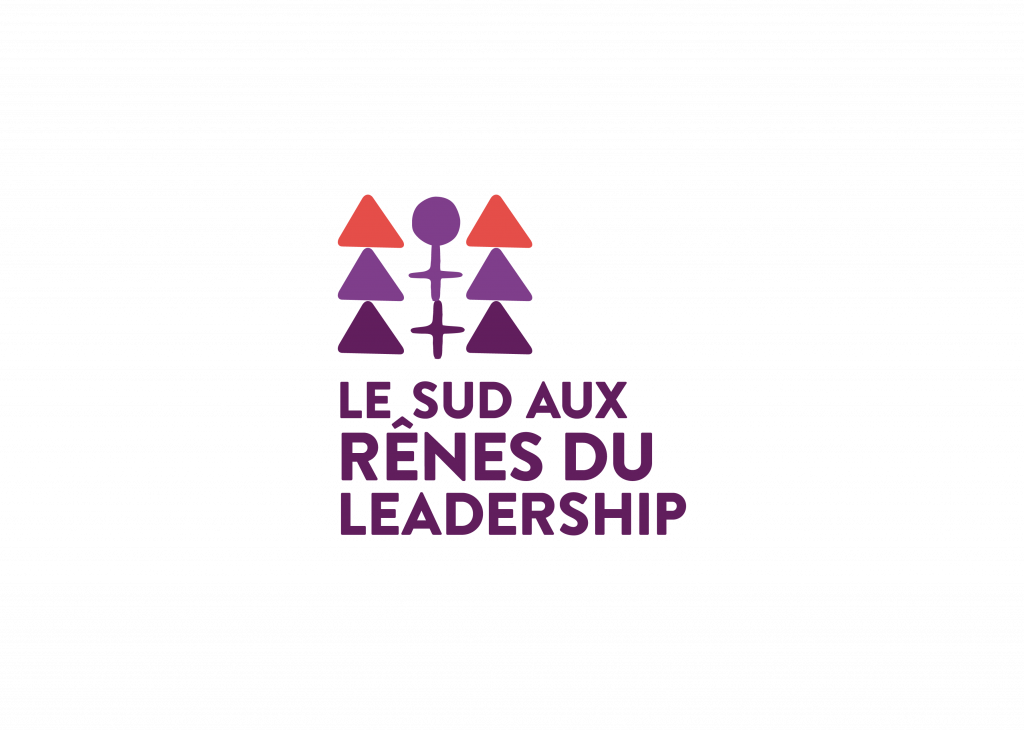 LE SUD AUX RÊNES DU LEADERSHIP’ (LFS) – un nouveau fonds pour l’activisme des droits des femmes dans les pays du Sud.
LE SUD AUX RÊNES DU LEADERSHIP’ (LFS) – un nouveau fonds pour l’activisme des droits des femmes dans les pays du Sud.
LE SUD AUX RÊNES DU LEADERSHIP (LFS) est une initiative globale d’octroi de subventions visant à soutenir les organisations, les groupes et mouvements de femmes à travers le monde pour plaider et défendre leurs droits. Lancé en 2017 et financé par le ministère des Affaires étrangères des Pays-Bas, le fonds soutient l’activisme réalisé et dirigé par les organisations de droits des femmes dans les pays du Sud. Elle est gérée par trois fonds régionaux et un fonds mondial pour les femmes, chacun utilisant une approche indépendante mais complémentaire aux autres.
Les quatre administratrices du fonds sont les suivantes:
- Fonds Africain pour le Développement de la Femme (AWDF): pour les pays d’Afrique et du Moyen-Orient.
- Fondo Mujeres del Sur (FMS): pour l’Amérique Latine et les Caraïbes
- South Asia Women’s Fund (SAWF): pour l’Asie-Pacifique
- FIMI International Indigenous Women’s Forum (AYNI): Pour les femmes autochtones dans tous les pays du Sud.
Dans les pays du Sud, les organisations et réseaux de femmes jouent un rôle important pour influencer les politiques des gouvernements, des dirigeants, des collectivités et autres acteurs pour atteindre l’objectif mondial no. 5 : égalité entre les sexes et l’autonomisation des femmes et des filles. LFS encourage la coopération transfrontalière et relie les organisations de base avec des mouvements et réseaux nationaux, régionaux et mondiaux.
Grâce à des subventions, au renforcement des capacités, au lobbying et au plaidoyer, LFS aidera les organisations à influencer les politiques, à lutter contre les inégalités du pouvoir et à réduire l’exclusion, la violence, la discrimination et l’inégalité.
Pour plus d’informations sur les appels à propositions de projets, les statistiques, les questions fréquemment posées veuillez cliquer les liens ci-dessous:
Statistiques des Subventions octroyées pour le 1er cycle
Annonce du 1er cycle de subvention
Les questions les plus fréquemment posées
[/tp]
Join in the Conversation: The African Diaspora Women’s Forum
Join in the Conversation: The African Diaspora Women’s Forum
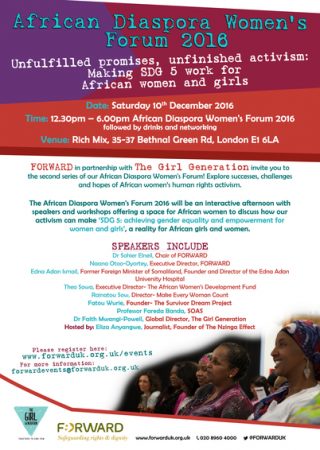
THE FOUNDATION for Women’s Health Research and Development (FORWARD) and The Girl Generation will be holding the second African Diaspora Women’s forum on Saturday 10 December at London’s Rich Mix venue in Bethnal Green.
The event will be a gathering of some of the most influential women in the African women’s rights movement and African development. Speakers on the day include Dr Sohier Elneil, Consultant Uro-gynaecologist and Uro-neurologist at University College Hospital and Chair of FORWARD and Naana Otoo-Oyortey FORWARD’s Executive Director along with Theo Sowa the Executive Director of the African Women’s Development fund, and Edna Adan Ismail the former minister of Somali Land amongst others.
This article is an excerpt from the voice online. The article in it’s entirety can be found here :
A Peculiar Debut: Jennifer Thorpe on her new Novel The Peculiars, and what Inspires her Writing.
A Peculiar Debut: Jennifer Thorpe on her new Novel The Peculiars, and what Inspires her Writing.
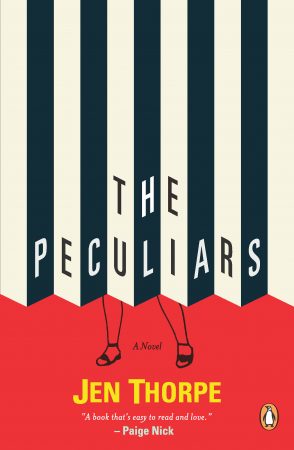
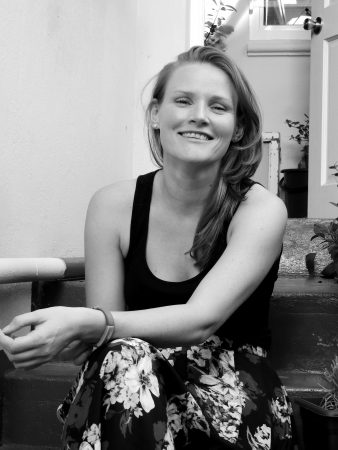
Farewell to Joana Foster.
Farewell to Joana Foster.

It is with great sorrow that the Board and Staff of the African Women’s Development Fund (AWDF) informs our friends and stakeholders of the death of Joana Silochina Foster, a co-founder of AWDF. She passed away peacefully on Saturday, 5 November 2016, after a long battle with cancer.
A long time African feminist and social justice activist, Joana was a lawyer specializing in Women’s Civil and Political Rights and Immigration. One of the many African activists who used the Fourth World Conference on Women (Beijing, 1995) as a springboard to accelerate the ongoing work of women’s rights in Africa, Joana was also one of the founders of the Gender and Human Rights Documentation Centre (Gender Centre) in Ghana. During her career, she worked in various parts of Africa as well as Europe, most notably as the Regional Coordinator of Women in Law and Development in Africa (WILDAF), Ghana Country Director of CUSO (a Canadian not for profit organisation) and later as the Senior Gender Advisor to the United Nations Mission in Liberia. She served on a number of organisational Boards, including the Child Poverty Action Group in the UK.
Joana will be missed for her passion, commitment, vivacity and joyous spirit. She will be remembered for the impact of her activism and the variety of social justice initiatives she inspired, developed and made happen. She leaves behind a legacy that will be remembered for as long as AWDF and the Gender Centre remain hubs of feminist activism.
Our deepest condolences go to Joana’s family and friends as they mourn the passing of a great spirit.
Dearest Joana, rest in peace.
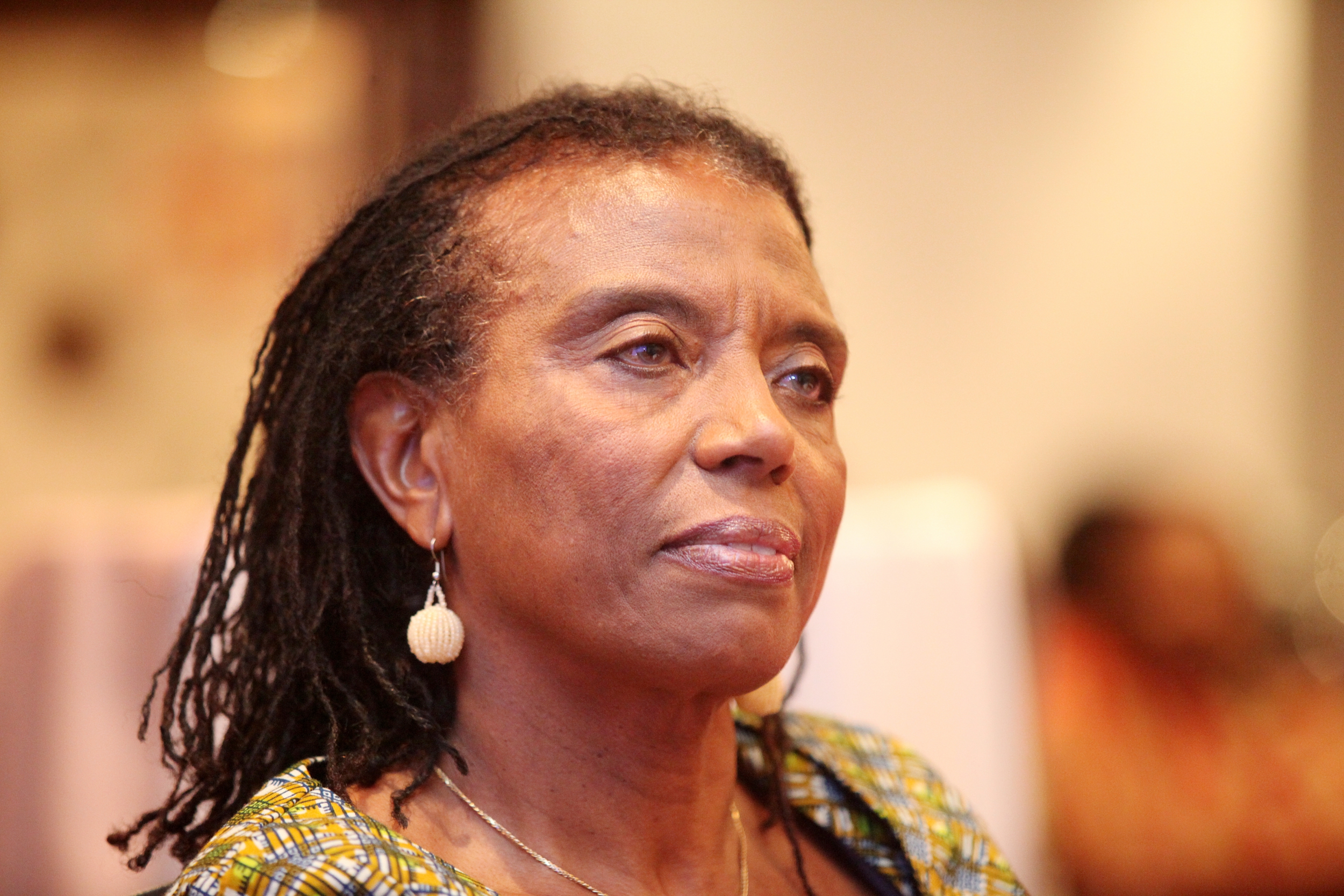
Solidarity in word and deed: Translating the African Feminist Charter
Solidarity in word and deed: Translating the African Feminist Charter
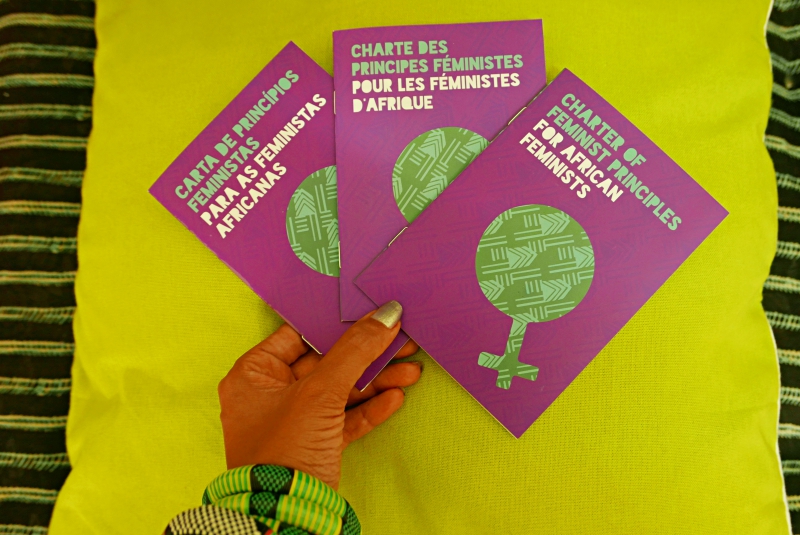
Author: Jessica Horn, AWDF Director of Programmes
It may seem odd to be excited about a publication. However the story of the translation of the Charter of Feminist Principles for African Feminists begs recounting as a tale of inspired collective action.
The Charter itself was developed by the African Feminist Forum Working Group in 2006 and adopted in by over 100 African feminists at the first African Feminist Forum (AFF) hosted by AWDF in Accra that year. The goal was political clarity. Every movement needs to articulate its visions of ethics and collective power-and its political bottom lines. The Charter provided this, and has been used since as a means of bringing feminist activists across generations together to build feminist consciousness, create new feminist spaces and even to help unite women mobilising against religious fundamentalism.
As beautiful as it is, the Charter was written in English- a language spoken by some but not all of Africa’s people. Translating the Charter was imperative. However as is typical in the world of women’s organising, the AFF faced the challenge of funding. What we had not anticipated was the spontaneous action and love that we would receive in the form of voluntary translation by African activists so moved by the Charter that they saw it necessary to make sure the people they organised alongside could read it too.
In its first incarnation, Beninoise feminist and AWDF staff member Rissi Asani-Alabi translated the Charter into French for use in the bilingual AFF regional forums and to aid the creation of national Feminist Forums in Francophone African countries. Using this, Senegalese feminists Fatim Faye and Kura Saar went on to translate the Charter into Wolof, a language spoken widely in Senegal and Gambia. In the revised version additional translation support was offered by Pathé Diagne, one of Africa’s leading linguists and political scientists (who has, notably, also translated the Quran into Wolof).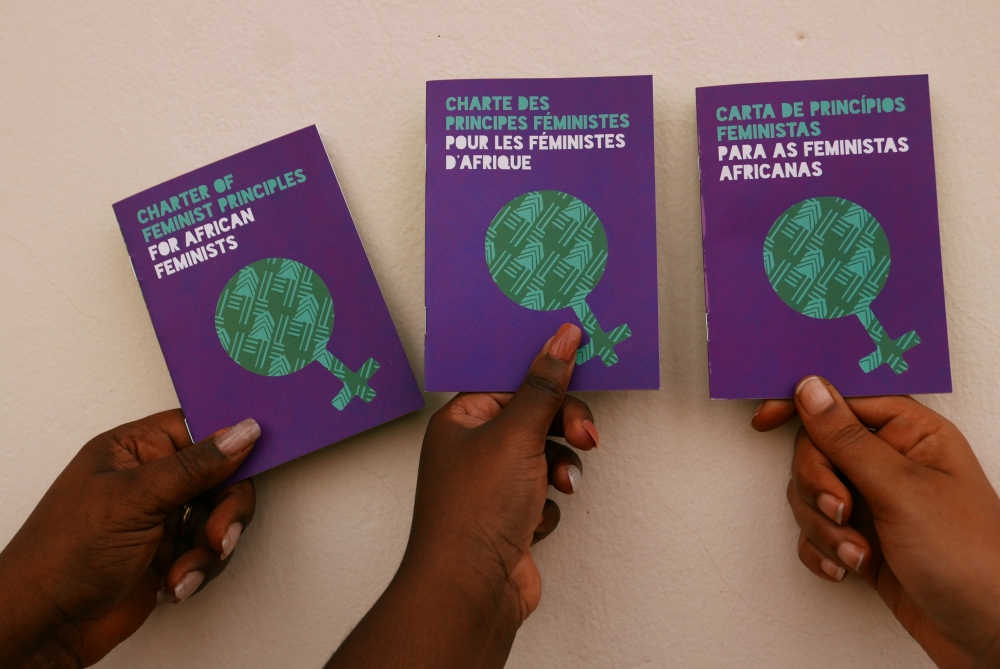
In Tanzania, staff of the country’s leading women’s rights organisation Tanzania Gender Networking Programme translated the Charter into Kiswahili, opening up readership in Central and East Africa and offering feminist discourse in Kiswahili including the term feminism itself and a translation of the concept of ‘patriarchy’ (mfumo dume).
And the feminist love has continued to flow.
On reading the Charter for the first time, Egyptian women’s human rights defender Yara Salaam offered, in typical generous style, to translate the text into Arabic. Her father, poet and translator Refaat Sallam provided proofreading support, making the Charter accessible now to Arabic-speaking feminists across north and northeast Africa and to African feminists in Arabic speaking diasporas.
After returning from the 4th African Feminist Forum in Zimbabwe in early 2016, Angolan feminists Sizaltina Cutaia and Âurea Mouzinho were inspired to revive feminist organising by creating the Ondjango Feminista in their home country. Their first step, working with Florita Telo, was to translate the Charter into Portuguese to allow women in Angola to read and rekindle feminist activism. Through this solidarity, Portuguese translations of the Charters are already in the hands of feminist activists in Angola, Mozambique and Brazil- including with two of Brazil’s ground-breaking women capoeira masters.
This year we have worked with East African feminist graphic designer Lulu Kitololo to create a stunning new redesign of the Charter, producing versions in all of the languages available thus far. For Latin script we used title fonts created by The League of Moveable Type, a self-named leader in the open source font revolution, offering highly designed free fonts. In Arabic, Yara Salaam suggested use of the Amiri font- an open source font project design to revive and digitise an older Arabic typeface.
We often think of solidarity as large public displays. However there is solidarity in these quieter acts of resourcing a movement through knowledge, skills and time. Feminism is not just in the saying, it is in the doing. The process of redesigning and translating the Charter of Feminist Principles has proved that.
Our heartfelt thank you goes to everyone who has participated in making the Charter relevant and accessible to the widest possible audience. We hope you find the new materials useful. And as always, do let us know how you are using them
Download the charter for free:
English
Français
Português
Wolof
Kiswahili
Arabic
http://africlub.net/awdf/wp-content/uploads/Charter_of_Feminist_Principles_for_African_Feminists.pdf
Suzzie Samtu
Suzzie Samtu
[tp lang=”en” not_in=”fr”]Suzzie Samtu manages the front desk in her bi-lingual capacity. As a holder of Higher National Diploma in Office Management from Alliance Française d’Accra, she developed a passion for women issues and feels strongly about gender inequality. She joined AWDF with 4 years’ experience in Front Desk Management, first in a Financial Institution and then in a Printing Firm.[/tp]
[tp lang=”fr” not_in=”en”]Suzzie Samtu est en Charge de la Réception de l’AWDF en sa capacité de bilingue. Titulaire d’un Diplôme Supérieur National (HND) en gestion de bureau de l’Alliance Française, elle a développé sa passion aux questions féminines et aux inégalités entre les sexes. Elle a rejoint l’AWDF avec 4 ans d’expériences dans la gestion de réception acquises dans une institution financière puis dans une imprimerie.[/tp]
Lydia MACLEAN
Lydia MACLEAN
[tp lang=”en” not_in=”fr”]Lydia Maclean is a seasoned Communications Professional with extensive experience in Public Relations, Corporate Affairs and Humanitarian work.
Prior to joining AWDF, Lydia worked as the Customer Service and Public Relations Manager of A-Plus Life Assurance Ltd, and has also been the Communications Manager of the Ghana Red Cross Society.
She holds a Bachelor of Arts Degree in Modern Languages from the University of Ghana, a Certificate in Marketing, Advertising and PR from the Ghana Institute of Journalism and a Master’s Degree in International Development from Andrews University, Michigan.
Lydia is a passionate advocate of Social Justice and is strongly committed to the promotion of women’s rights.[/tp]
[tp lang=”fr” not_in=”en”]Lydia MACLEAN est une Spécialiste en Communication avec une vaste expérience en relations publiques, les affaires de l’entreprise et en travail humanitaire.
Avant de rejoindre l’AWDF, Lydia était la Directrice du Service Client et des Relations Publiques de « A-Plus Life Assurance Ltd ». Elle était également Responsable du département de Communication à « Ghana Red Cross Society »
Elle est titulaire d’une Licence en Art – langues modernes de l’Université du Ghana, d’un certificat en Marketing, Publicité et en Relations Publiques de l’Institut de Journalisme du Ghana et d’une Maitrise en Développement Internationale de l’Université Andrews, Michigan.
Lydia est passionnée par la justice sociale et est fortement engagée dans la promotion des droits de la femme.[/tp]
The News
The News
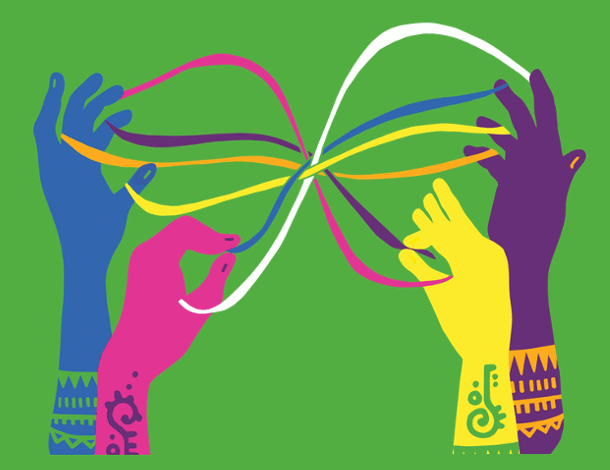
AWID Forum – Bahia, Brazil
The African Women’s Development fund participated in this year’s AWID Forum. Members of our organisation were present on several panels, and helped carry the voices of African Women to the discussions in Bahia, Brazil. The conference took place from the 8—11 September, with the Black Feminisms Pre-Forum taking place from the 5-6 September. The theme was “Imagining Feminist Futures”, and over the course of four days participants were made to imagine a feminist future and strategize around making that happen. It was an important, fruitful conference and we were glad to be a part of it.
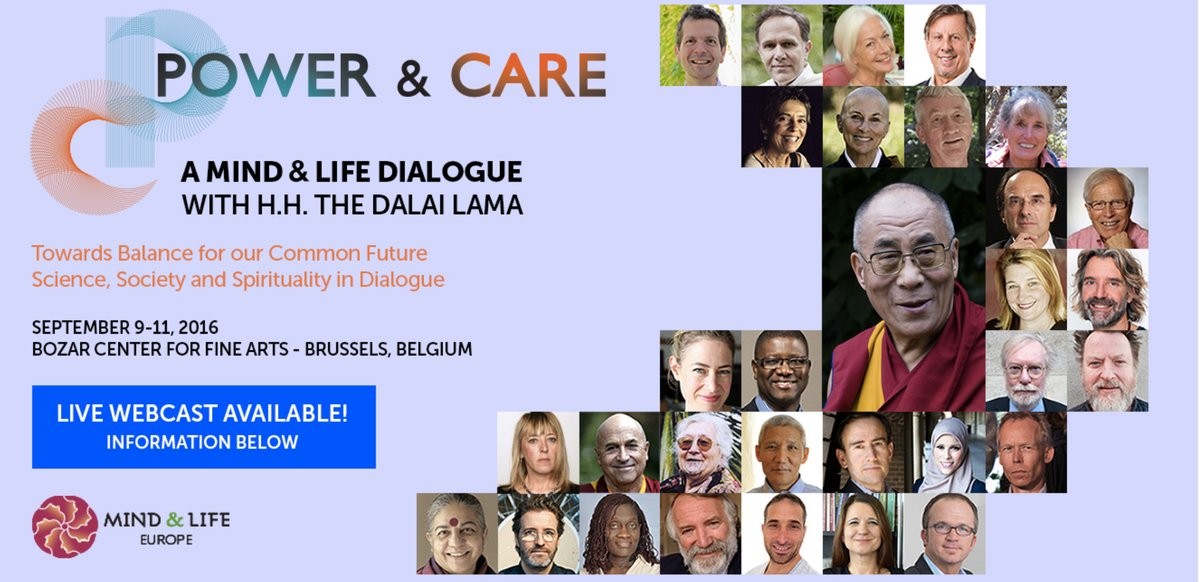
Power and Care : A mind and Life Dialogue with the Dalai Lama
AWDF CEO Theo Sowa was a moderator at the Power and Care Dialogue, held in Brussels from September 9-11. It was a two and a half day Mind and Life Dialogue of leading experts with His Holiness the Dalai Lama. The aim of the conference was to see how forces of power and care could be conscientiously and fruitfully allied, and engender projects and actions to promote the welfare of living beings and of our environment.
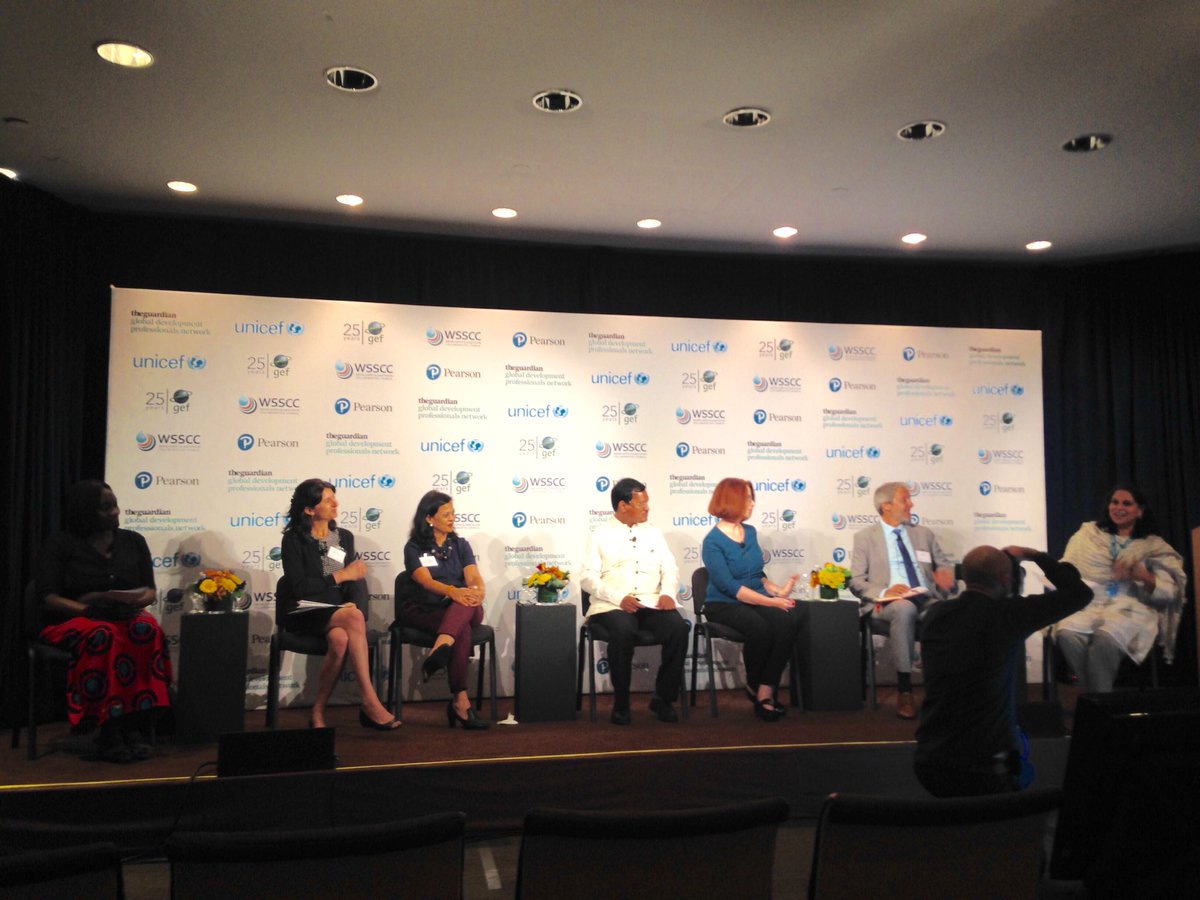
Launch of Education Commission Report to the United Nations Secretary General at the UN General Assembly
In September 2016, AWDF CEO Theo Sowa and other commissioners of the Global Commission for Education launched their report and agenda for action. They also presented the report to the United Nations Secretary General at the UN General Assembly.
Over the last year, the Education Commission has sought to persuade global leaders to take urgent action by bringing together the best evidence on what works in expanding access to quality education and learning for all. If leaders do not take action now to increase investment and reform global education, more than 124 million young people will continue to be denied access to schools and more than 250 million will not gain the skills they need to lead healthy and successful lives.
Supporting Arts, Culture and Sports for the promotion of Women’s Human Rights
Supporting Arts, Culture and Sports for the promotion of Women’s Human Rights
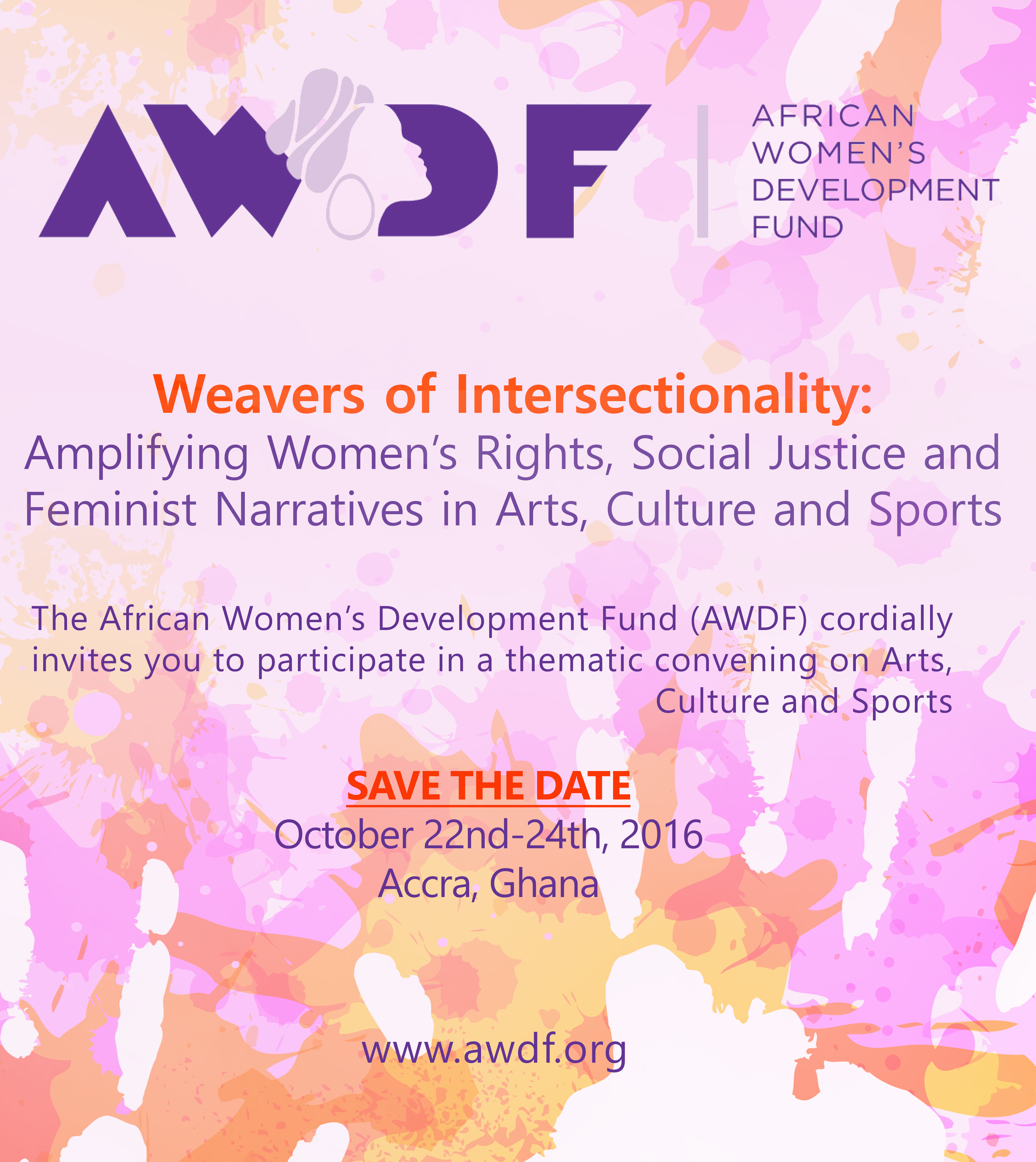
The African Women’s Development Fund will be hosting a thematic convening on arts, culture and sports from October 22-24th under the theme “Weavers of Intersectionality: Amplifying Women’s Rights, Social Justice and Feminist Narratives in Arts, Culture and Sport.”
The first of its kind, this convening will bring together key women creatives from multidisciplinary fields of art, cultural production and sports to talk about their experiences, connect with one another and devise new strategies to strengthen the voices of women within their industry and on the continent as a whole.
It is no secret that the multidisciplinary fields of arts, cultural production, and sports have a huge impact on how people across the world engage with one another and the African continent is no exception. Over the years, African traditions rich with oral history, visual imagery, poetry, proverbs, dance, theatre, and sports have used these tools for education, entertainment, conflict resolution and community building. However, these cultural industries have historically been dominated by men which limit women’s participation in these spaces.
Women’s engagement in arts and in sports has led to the birth of radical ideas, beliefs and attitudes about the immense value and contributions of women. It has also invigorated connections and possibilities for communities across the continent and the world at large. Through both the arts and sports, women have challenged and broken stereotypes, amplified the demands of women and feminist movements, raised resources, and spread messages of social change.
In spite of this work, women practitioners in arts, cultural production and sports face persistent restraints from intimidation, harassment, and theft of work to isolation, immobility, burnout and limited access to networks of care, support, and resources of sustainability. By working through a lens of intersectionality, African women are in a key position to speak out against multiple oppressions – gender, sexuality, disability, race, class, ethnicity, geography, etc. – within their fields of work. This convening will help connect women whose work has been instrumental in telling the stories of african women’s lives and who have used their various mediums to amplify women’s rights, social justice and feminist narratives. The multidimensional nature of the convening will promote cross learning and solidarity. It will be a creative, engaging space that will help spark new momentum for change within various creative industries on the continent.

